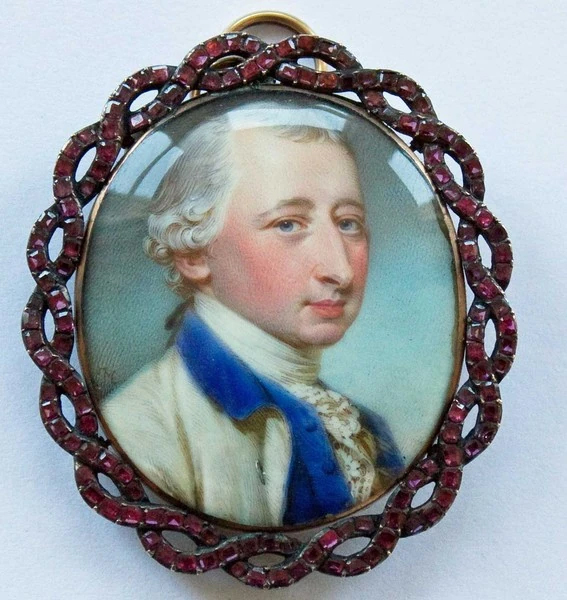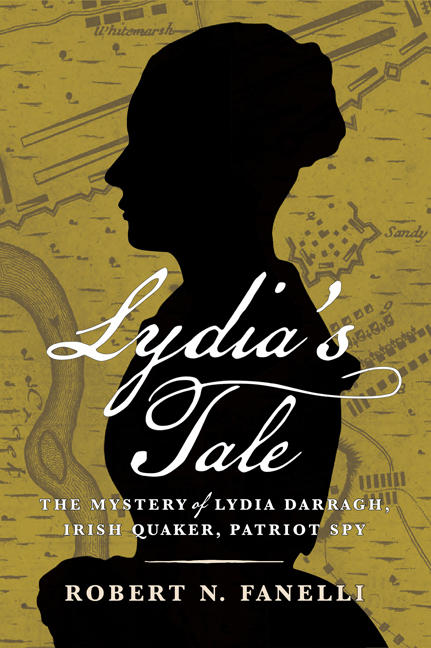Eric Sterner is a writer and historian living in Northern Virginia, who has worked primarily in the fields of national security and aerospace policy for both the government and private sector. He served at the Department of Defense and NASA during the Bush Administration and held senior staff positions for the Committee on Science and the Committee on Armed Services in the House of Representatives. He has a BA in Russian/USSR Area Studies from the American University and separate MAs in Political Science and Security Policy Studies from the George Washington University.
What inspired you to start researching and writing about the Revolution?
History seems to be in my DNA. When I was a kid, we often visited my grandparents in Philadelphia and had a chance to see all the Revolutionary War sites there: Independence Hall, Brandywine park and battlefield, and Valley Forge, for example. They stuck with me. A career in public policy and government renewed my appreciation for the challenges the founding generation faced, their successes, and their failures. I spent most of my early career working for Congress. Late one night, in the midst of a long and complicated legislative negotiation, I walked out into the Capitol Rotunda, looked up at Brumidi’s “Apotheosis of Washington” and wondered what the father of his country would think of us now. When the opportunity came to study the period more rigorously and start to answer that question in my own head, it was natural to take it.
What historians or books have most influenced your work? Why?
When I was in school studying Russia and the Soviet Union, W. Bruce Lincoln was one of my favorite historians. He captured the stories of individuals caught up in sweeping events and placed them in context to help explain the period. David Hackett Fisher is one of the Revolutionary War historians I most admire. His book Washington’s Crossing beautifully set the stage, explained the broader forces at work in 1776, and told a narrative rich with real people in ways that reignited my interest in the Revolution. (I had studied military history from a political science perspective for work and Civil War history almost exclusively on my own.) I have trouble putting any of his books down once I open them. Today, I’ll likely have a book by Colin Calloway and/or John Ferling open on my desk. I also have to confess a weakness for Jeremy Black, John Terraine, Russell Weigley, and political scientist Eliot Cohen for influencing my study of military history and political decision-making over the years.
What are your go-to research resources?
When coming across something interesting, I often check with Mark Boatner’s Encyclopedia of the American Revolution and a fair number of single-volume surveys I have at home (Middlekaupf and Ferling especially) to get a handle on an issue and help frame my first set of questions. Then, I’ll look at JAR’s search engine and do some online searches to see what’s already out there. (Ironically, I probably find as many leads on Amazon’s site as anywhere else.) The Library of Congress has several different online databases of digitized material, and museums are starting to put more of their collections online. Once I have a half-way decent handle on the who, what, why, where, and when, I’ll start digging through the Internet Archive, which is an excellent repository of older published material that helps fill in first-person experiences, thoughts, correspondence, and memoirs. Often, I simply come across material there that provokes my curiosity and then start digging.
Which of your own JAR articles is your favorite or most rewarding? Why?
In 2016 I wrote an article about Captain John Peck Rathbun, which was probably the most exciting to picture in my head; a Hollywood scriptwriter couldn’t do better. Unfortunately, Rathbun left no real correspondence behind, so there are limits to how much a historian can write about him without moving into historical fiction. But, two I wrote in 2018 are tied for my favorites:“Moravians in the Middle: The Gnadenhutten Massacre” and “A Curious ‘Trial’ on the Frontier.” They concern two aspects of the Moravian missionary experience on the Ohio frontier during the war. The missionaries left a massive number of footprints in the historical record, both in their own diaries and narratives and in the observations of those with whom they interacted. Lately I’ve spent so much time with two of them, John Heckewelder and David Zeisberger, that I feel like I know them as people.
Other than your own contributions, what are some of your favorite JAR articles?
It’s a tough call because I’ve enjoyed so many. I really got a kick out of the Patrick Hannum’s “The Second Battle of Cowpens: South Carolina Vs. Winchester, Virginia.” I visit Winchester one or two times a year and tour some of the Civil War battlefields in the lower Shenandoah Valley. It was nice to see some of the town’s Revolutionary War history pushed to the forefront. Gary Shattuck’s “Thomas Gage Reconsidered: When Law Interferes with War” also made an impression that stuck with me for a while. When the Global War on Terror started after 9/11, the country had to face many similar issues, and I recognized Gage’s dilemma as something we still wrestle with when it comes to applying law to grey-area conflict.
In general, I really appreciate the book reviews because they draw my attention to things I might otherwise miss or, better yet, spare me from adding a mediocre volume to my library. Pieces about small battles that often get overlooked can also be fascinating. For the people involved, they could be every bit as intense as Princeton, Monmouth, Lexington, Concord, or Yorktown. They help us understand the war’s wider context and perhaps bring us closer to the experiences of most people during the war.
What books about the American Revolution do you most often recommend?
It usually depends on the reader’s interests. But, for someone just starting out, I always recommend David Hackett Fischer’s Washington’s Crossing or Paul Revere’s Ride. Most readers have at least a passing awareness of those two events, so the topics aren’t obscure, and a reader can quickly relate. Fischer writes so well that both sucked me in as page turners while retaining the academic rigor at which Fischer excels. They’re a great way to inspire people new to the field to pursue it further.
What new research/writing projects are you currently working on?
Right now, I’m putting the finishing touches on a 14,000-word piece about the 1782 campaign led by Colonel William Crawford to strike Indian enemies along the Sandusky River in Northwest Ohio. In developing that piece, I’ve had a chance to do additional research on the militia that carried out the Gnadenhutten Massacre. They considered the massacre a “successful campaign” and wanted to follow up by attacking villages farther west, which were indeed the sources of brutal raids against frontier settlements. It’ll run as a serial on the Emerging Revolutionary War Era website.
Studying the war on the frontier and writing the two pieces on the Moravian missionaries really sparked my interests in the region and led me to continue researching it with an eye toward a longer project. In particular, I want to turn the JAR article about the Gnadenhutten Massacre into a book that captures the forces at work leading up to it. From researching that further, a picture emerges that looks like something conjured up by George R.R. Martin for his Game of Thrones series, known for its complex characters, multiple sub-plots, changing allegiances, and frequent violent deaths among protagonists and antagonists alike. Through it all, the missionaries and their Indian congregations struggled to keep their faith and preserve a way of life they’d chosen amidst the tidal wave of political, military, ethnic, and economic conflict swirling up and down the Ohio River valley.
What other hobbies/interests do you enjoy?
I’ve got two pre-teen daughters. So, for the last decade-plus, their interests have been my interests and my new hobby is chauffeuring them around. Fortunately, they give me ample reasons for pride every day and share an interest in history. My wife and I have taken plenty of opportunities to visit many of the sites I write about. This summer, my youngest and I visited Gnadenhutten, Zeisberger’s grave, and Fort Laurens, all in Ohio. Hopefully this fall we can run down to Jefferson’s Monticello and Madison’s Montpelier.
Why is Journal of the American Revolution important to you?
I used to start my day with the news and media specializing in national security and aerospace matters. Now, I start it with JAR, Emerging Revolutionary War Era (to which I also contribute), and Emerging Civil War. I’m a much happier man. JAR’s articles are well written, well-illustrated, and cover such a vast range of topics that there’s always something interesting and new on the front page. Back in the early 90s, I wrote some history pieces for Naval History magazine, but had to put writing about the past on hold while I focused more on researching and writing about technology and national security. When I finally had a chance to return to history, JAR was the first place I wanted to submit.
Is there an article, or subject area, that you would like to see appear in JAR?
I love it as it is because the range of subjects is so broad and continually changes. I’ve learned about the mid-Atlantic campaigns, southern campaigns, the militia, Loyalists, cuisine, historical sites, rank in the Continental Army, individuals, clothing, new archival material, books, movies, lists, rankings, the frontier, weapons and equipment; you name it, JAR has covered it or soon will!








5 Comments
Eric, enjoy your articles and look forward to your work on Crawford’s campaign!
Given your congressional background, you could add insights into the Continential Congress’ Board of War which is an underreported and evaluated function.
Gene:
Thanks and I appreciate the encouragement. I’ve enjoyed your articles as well. The Crawford piece started running in Emerging Civil War a little while ago and should wrap up next week. Stop by and take a look!
Some day I may take a look at the Second Continental Congress when it comes to management of the war. I’ll confess to having had my judgments and opinions of the opinion heavily (and unfairly) influenced by Washington and his generals over the last few years.
Studying Indian diplomacy on the Ohio, Congress was more involved early on than I think folks realize. Its strategy along the Ohio was pretty solid, but I have a lot more research to do on that front.
Thanks again.
Oops….the Crawford piece is running on Emerging Revolutionary War Era.
Eric,
I am also an avid fan of David Hackett Fisher, who will honored by the New England Historical and Genealogy Society October 25th in Boston. Loved Washington’s Crossing and Albion’s Seed too.
Enjoyed your article on Capt. John Peck Rathbun as a Rhode Islander and maritime historian. One favor please. Could you amend your online article to add the name of the sailing master referenced in (22) it was George Sinkins, Newport Rhode island. He was my 5x great grandfather.
Daniel:
Glad to see another of Fischer’s fans out there.
Appreciate the comment on the Rathbun article. What a great connection to the captain and his ship you have! It’s easiest if you just comment on the original article and note the fact. If you can track it down, Hope Rider’s “Valour Fore & Aft” is a wonderful book about the Providence’s cruises. Don Hagist put me on to it and I managed to find a copy. Rider notes the battle with Mary and your ancestor’s sacrifice.
Best,
Eric